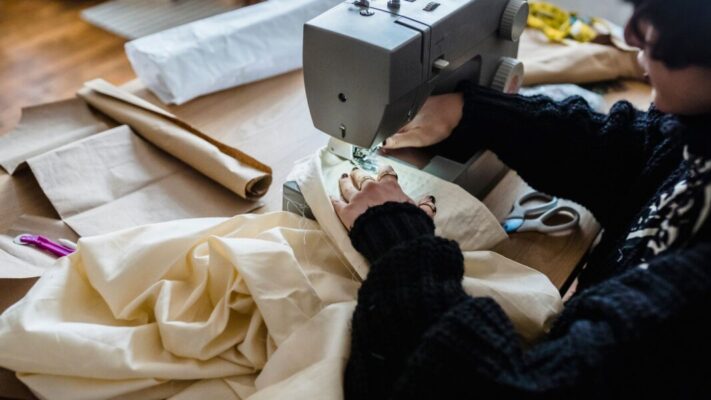The global conversation around ethical manufacturing has gained momentum, particularly within the fashion and garment industries. Consumers are increasingly aware of the impact their purchasing decisions have on the environment, society, and the economy. Amid this backdrop, Megaya Bali Garment Manufacture stands out as a model of ethical business practices in Bali, providing a compelling case for why ethical manufacturing is essential in today’s world.
The Rise of Ethical Manufacturing
Ethical manufacturing refers to practices that prioritize fair labor conditions, sustainable materials, and environmentally friendly processes. The rise of fast fashion has highlighted the darker sides of garment production—exploitative labor conditions, environmental degradation, and a lack of transparency. As consumers become more conscientious, they demand brands that align with their values, focusing on sustainability and social responsibility.
Why Choose Ethical Business Practices?
- Consumer Demand: Today’s consumers are not just looking for quality products; they are increasingly concerned about the ethics behind those products. A survey by Nielsen indicated that 66% of global consumers are willing to pay more for sustainable brands. Companies that adopt ethical practices can better align with consumer expectations and build brand loyalty.
- Employee Well-Being: Ethical manufacturing promotes fair labor practices, ensuring that workers are treated with dignity and respect. This results in better morale, higher productivity, and lower turnover rates. By providing fair wages and safe working conditions, companies like Megaya Bali create a positive work environment that benefits both employees and the business.
- Environmental Sustainability: The garment industry is one of the most polluting industries globally. Ethical manufacturers are committed to using sustainable materials and processes that minimize their environmental impact. This commitment not only helps preserve the planet but also appeals to environmentally conscious consumers.
- Transparency and Accountability: Ethical businesses prioritize transparency in their supply chains, allowing consumers to understand where their products come from and how they are made. This openness builds trust and encourages brands to take responsibility for their impact.
Megaya Bali Garment Manufacture: Ethical Practices in Action
Fair Labor Conditions
At Megaya Bali, the commitment to ethical manufacturing begins with the treatment of its workers. The company ensures fair wages, safe working conditions, and reasonable working hours. Employees are given opportunities for skill development and advancement, fostering a culture of respect and growth.
Sustainable Sourcing
Megaya Bali prioritizes the use of sustainable materials in its production processes. By sourcing organic fabrics and utilizing eco-friendly dyes, the company minimizes its environmental footprint. This dedication to sustainability not only attracts conscious consumers but also sets a standard for the industry.
Community Engagement
Beyond just ethical manufacturing, Megaya Bali actively engages with the local community. The company supports local artisans and craftspeople, providing them with a platform to showcase their skills and products. This not only boosts the local economy but also preserves traditional crafts and promotes cultural heritage.
Transparency in Operations
Megaya Bali maintains a transparent supply chain, allowing consumers to trace the origins of their products. This transparency builds trust and accountability, ensuring that customers know they are supporting a brand that aligns with their values.
Concerns Surrounding Business Ethics Today
In today’s fast-paced and often volatile business environment, several concerns regarding ethical practices have emerged:
- Greenwashing: As more companies claim to be “sustainable,” consumers face the challenge of identifying genuine ethical practices. This has led to skepticism and a demand for greater transparency.
- Supply Chain Disruptions: The COVID-19 pandemic highlighted vulnerabilities in global supply chains. Companies that prioritize ethical practices are better equipped to handle disruptions, as they often have more localized and transparent operations.
- Social Inequality: The garment industry has long been associated with social injustices, particularly in developing countries. Consumers are increasingly aware of these issues and are demanding accountability from brands.
- Environmental Impact: With climate change becoming an ever-pressing issue, the fashion industry is under scrutiny for its significant carbon footprint. Ethical manufacturers like Megaya Bali are addressing these concerns head-on by adopting sustainable practices.
Megaya Bali Garment Manufacture exemplifies the benefits of ethical business practices in the garment industry. By prioritizing fair labor conditions, sustainable sourcing, community engagement, and transparency, the company not only meets the growing demands of conscious consumers but also contributes positively to the local community and the environment. As the landscape of business continues to evolve, the commitment to ethical practices will be essential for companies seeking long-term success and sustainability. In an era where consumers are more empowered than ever, choosing to support ethical manufacturers is a step towards a more equitable and sustainable future.










